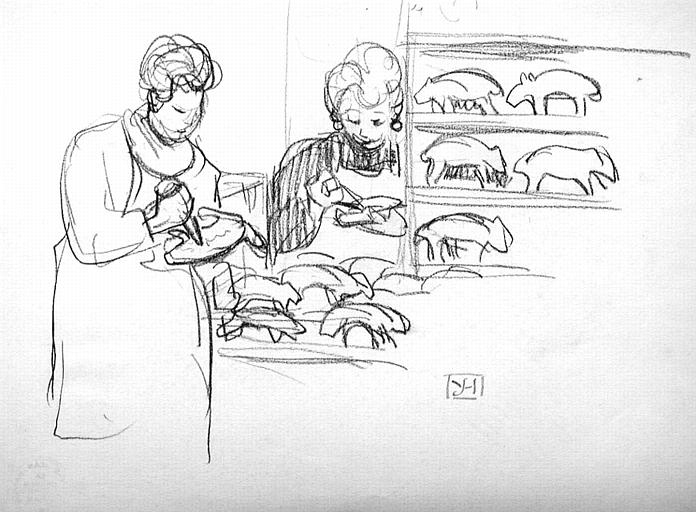Environ 10 résultats pour « Sucre »
-
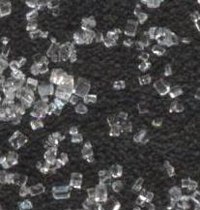
Sucre
Le sucre est une substance de saveur douce extraite entre autres de la canne à sucre. Il est majoritairement formé d'un composé nommé saccharose. Il se trouve que la betterave sucrière et d'autres végétaux permettent également de produire des produits composés majoritairement de saccharose. Toutefois, d'autres composés de la même famille des saccharides ont également une saveur douce : le glucose, le fructose... qui sont de plus en plus utilisés par l’industrie agroalimentaire et d’autres industries. D'une manière plus générale, le terme "sucre" peut se rapporter à un ose quelconque. Divers végétaux contiennent des quantités importantes de sucres et sont utilisés comme matière première d'où l'on extrait ces sucres, souvent sous la forme de sirop : Agave américain dont on extrait le sirop d'agave Betterave sucrière Canne à sucre dont le sucre produit est à la base de plusieurs cultures et civilisations Cocotier : certains Austronésiens, comme les Gilbertins, extraient la sève et en font du sirop Érable :, Palmier-dattier : (sucre et sirop de palmier provenant de la sève, sucre et sirop de datte provenant du fruit), Palmiers à sucre comme le cocotier du Chili donnent du sirop de palmier, Plantes à fleurs dont les abeilles transforment le nectar en miel Sorgho avec lequel on fabrique le, Les sucres ont une saveur sucrée que l'on a dit être une des quatre saveurs de base, mais les physiologistes ont depuis longtemps réfuté cette classification fausse. Ce qui est clair, c'est que les saveurs sucrées semblent indiquer aux primates, humains ou non humains, la valeur énergétique des végétaux, d'où le plaisir qui lui est associé. Certaines saveurs sucrées sont notamment reconnue par une famille de récepteurs couplés à la protéine G T1R1, T1R2 et T1R3, ils s’assemblent en homodimères ou hétérodimères et permettent la reconnaissance des sucres naturels ou artificiels. À part les sucres, de nombreuses autres molécules, artificielles ou naturelles, possèdent un pouvoir sucrant, celles-ci ne sont pas toutes reconnues par tous les animaux. Parmi les molécules d'origine naturelle on trouve les acides aminés, les protéines, des hétérosides, etc. Parmi les molécules de synthèse, on trouve, des dipeptides, des sulfamates, etc.
-
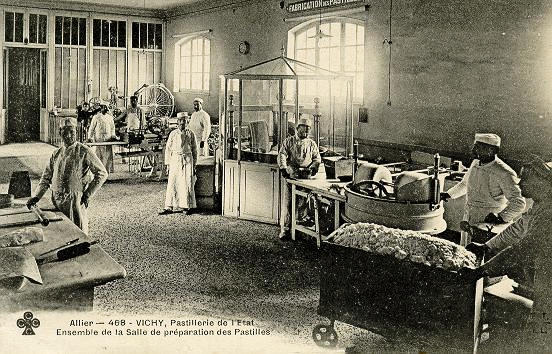
ALLIER - 488 VICHY - PASTILLERIE DE L'ETAT - ENSEMBLE DE LA…
-
- Domaine(s) :
- Artisanat
- Ethnologie
- Photographie
-
- Sujet représenté :
- Confiserie
- Cuve
- Fabrication
- Industrie agroalimentaire
- Machine
- Ouvrier
- …
-
- Datation :
- XXe siècle
-
-
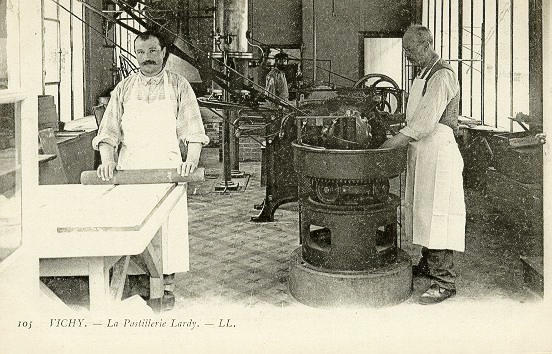
305 VICHY - LA PASTILLERIE LARDY
-
- Domaine(s) :
- Ethnologie
- Photographie
-
- Sujet représenté :
- Confiserie
- Fabrication
- Industrie agroalimentaire
- Machine
- Ouvrier
- Sucre
- …
-
- Datation :
- XXe siècle
-
-
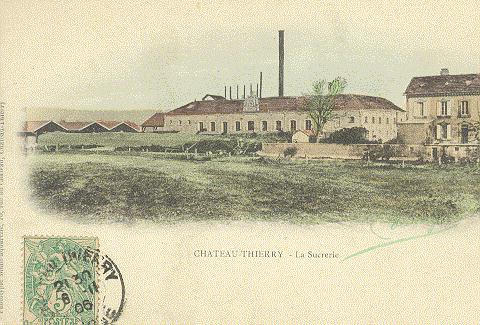
CHATEAU-THIERRY - LA SUCRERIE
-
- Domaine(s) :
- Architecture
- Ethnologie
- Philatélie
- Photographie
-
- Sujet représenté :
- Arbre
- Champ (agriculture)
- Château-Thierry
- Maison
- Mur
- Sucre
-
- Datation :
- XXe siècle
-
-
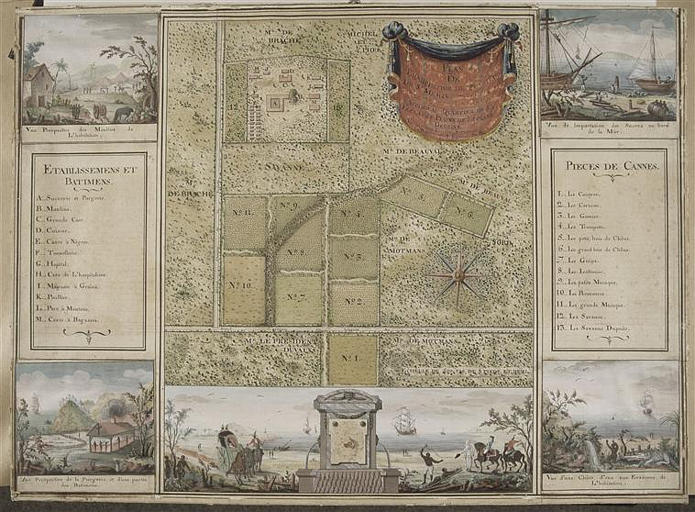
Plan de l'habitation de Févret de Saint-Mémin à Saint-Domin…
-
- Domaine(s) :
- Carte géographique
- Dessin
-
- Sujet représenté :
- Alligator
- Arecaceae
- Chute d'eau
- Fabrication
- Haïti
- Individu
- …
-
- Datation :
- XVIIIe siècle
-
-
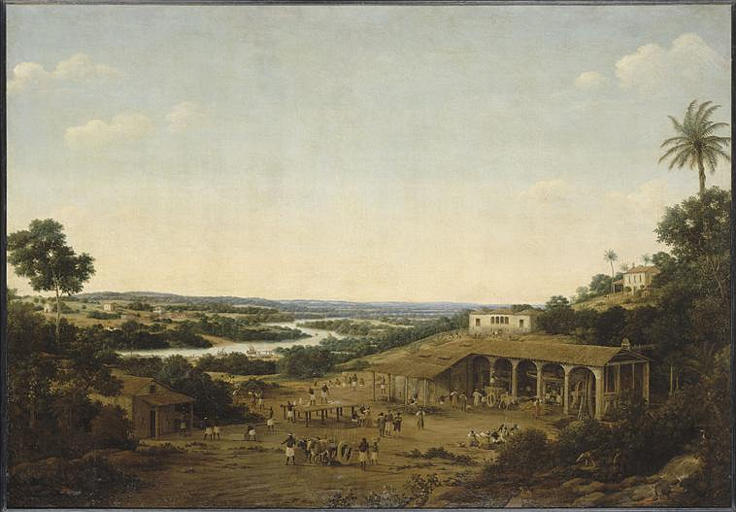
VUE D'ENGENHO REAL AU BRESIL, DIT AUSSI VUE D'UNE SUCRERIE …
-
- Domaine(s) :
- Peinture
-
- Sujet représenté :
- Arecaceae
- Brésil
- Bœuf (animal)
- Canne à sucre
- Char
- Cours d'eau
- …
-
- Datation :
- XVIIe siècle
-
-
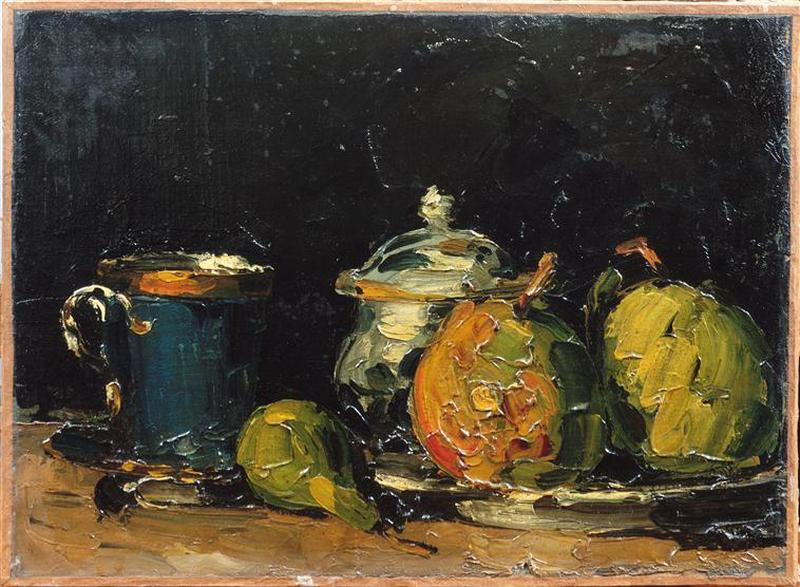
-
- Artiste(s) :
- Paul Cézanne
NATURE MORTE : SUCRIER, POIRES ET TASSE BLEUE
-
- Domaine(s) :
- Peinture
-
- Sujet représenté :
- Couteau
- Nature morte
- Poire
- Pot (récipient)
- Sucre
- Tasse
-
- Datation :
- XIXe siècle
-
-
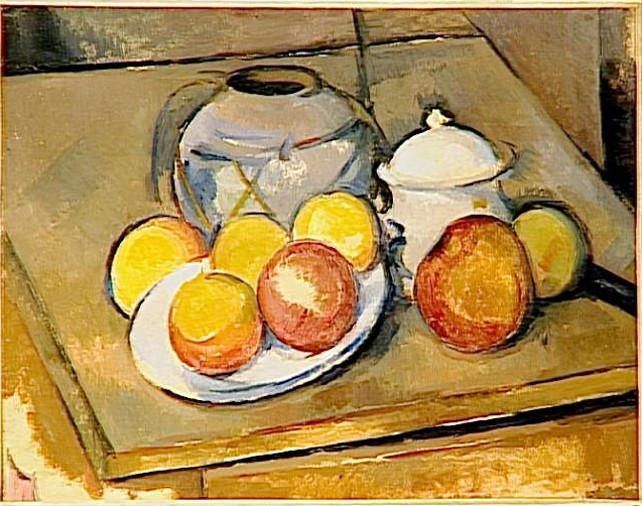
-
- Artiste(s) :
- Paul Cézanne
Vase paille, sucrier et pommes
-
- Domaine(s) :
- Peinture
-
- Sujet représenté :
- Assiette (vaisselle)
- Nature morte
- Pomme
- Pot (récipient)
- Sucre
- Table
-
- Datation :
- XIXe siècle
- XXe siècle
-
-
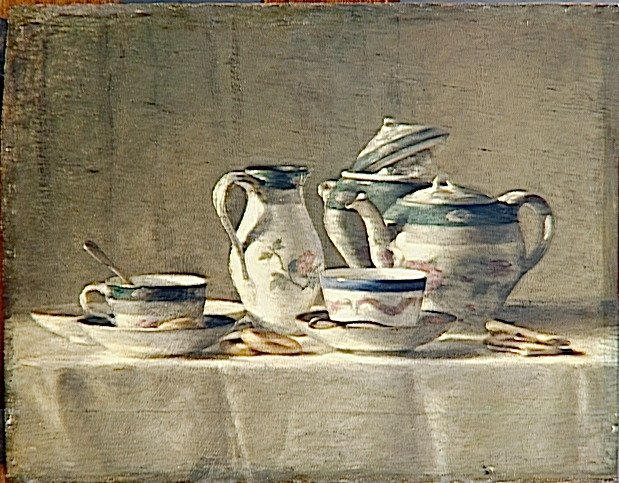
-
- Artiste(s) :
- Anonyme
Le service à thé
-
- Domaine(s) :
- Peinture
-
- Sujet représenté :
- Nature morte
- Pâtisserie
- Sucre
-
- Datation :
- XIXe siècle
- XXe siècle
-
-
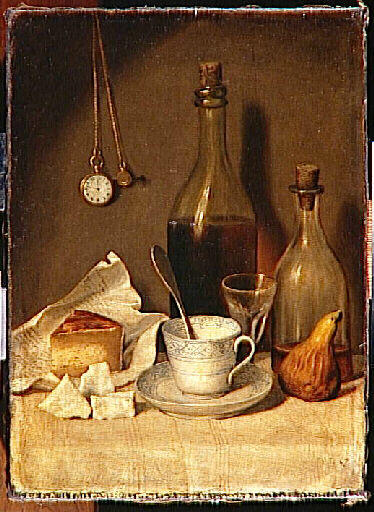
Nature morte
-
- Domaine(s) :
- Peinture
-
- Sujet représenté :
- Boisson
- Bouteille
- Figue
- Fromage
- Montre (horlogerie)
- Nature morte
-
- Datation :
- XIXe siècle
-
-
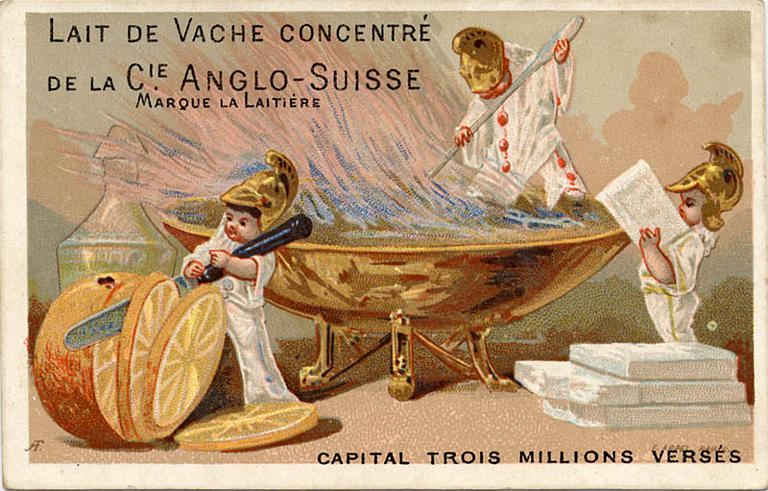
Enfants portant un casque de pompier et préparant un plat f…
-
- Domaine(s) :
- Estampe
- Ethnologie
-
- Sujet représenté :
- Couvre-chef
- Enfant
- Feu
- Pierrot (commedia dell'arte)
- Pompier
- Sucre
-
- Datation :
- XIXe siècle
-
-
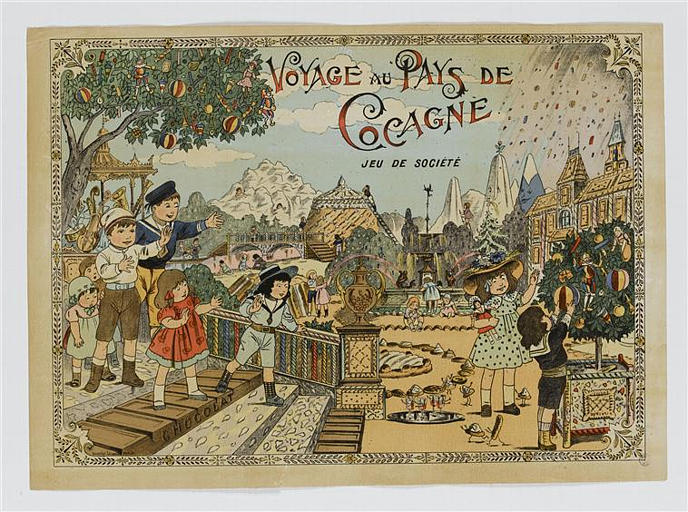
Voyage au Pays de Cocagne (titre inscrit)
-
- Domaine(s) :
- Estampe
- Ethnologie
-
- Sujet représenté :
- Confiserie
- Enfant
- Gourmandise
- Instrument de musique
- Jardin
- Kiosque
- …
-
- Datation :
- XXe siècle
-
-
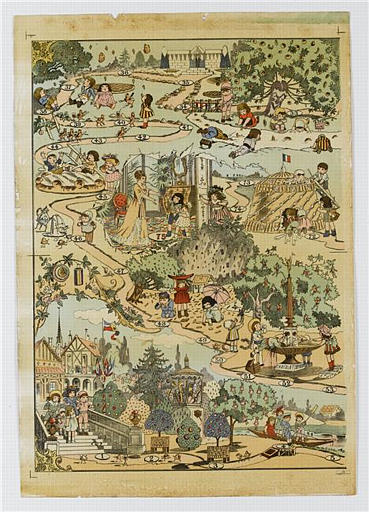
-
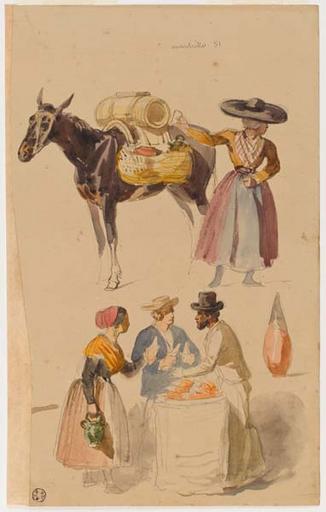
marseille 51 (titre inscrit)
-
- Domaine(s) :
- Dessin
-
- Sujet représenté :
- Chapeau
- Costume traditionnel
- Cruche
- Femme
- Marseille
- Mule (chaussure)
-
- Datation :
- XIXe siècle
-
-
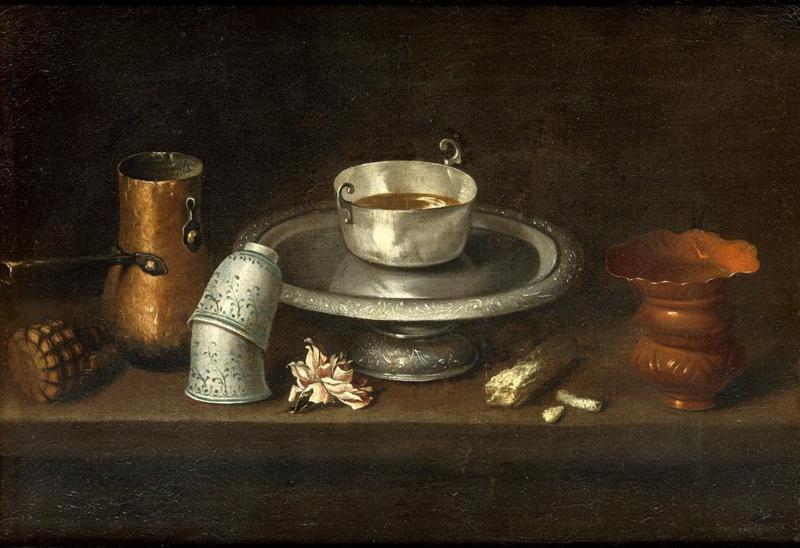
Nature morte au bol de chocolat
-
- Domaine(s) :
- Peinture
-
- Sujet représenté :
- Amande
- Argent
- Assiette (vaisselle)
- Bol (vaisselle)
- Cacao
- Chocolat
- …
-
- Datation :
- XVIIe siècle
-

